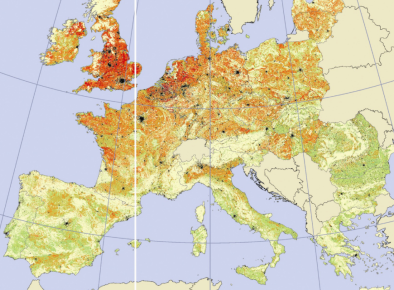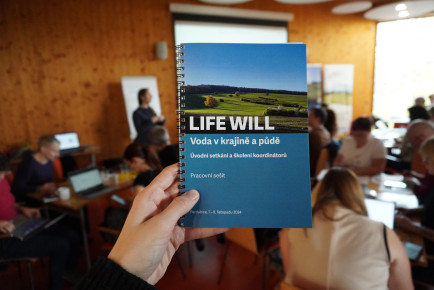Commentary: On Fertiliser Shortage and Regenerative Agriculture
Published: Oct 18, 2022 Reading time: 3 minutes Share: Share an articleIn this commentary, our Environmental Advisor, Jakub Zelený, discusses Regenerative Agriculture as a potential solution to the problems of rising food prices caused by the shortage of fertilser, fossil fuel dependency, and soil degradation.
Today, as part of the Czech Presidency of the EU, the Czech Ministry of Agriculture is discussing the hot topic of a lack of artificial fertilisers and their high price. This topic is threatening current and future harvests in the EU and beyond. Due to the conflict in Ukraine, the availability and prices of artificial fertilisers have become a hot issue since up to 60% of fertilisers were imported from Belarus or Russia prior to the conflict. As a consequence of the sanctions, the trade has practically collapsed and resembles the fossil fuel trade.
Artificial fertilisers depend mainly on the availability of nitrogen and phosphorus components: the former being highly energy demanding, costing large amounts of fossil fuels to manufacture, while the latter can not be manufactured and has to be imported, recently from Belarus and Russia. While the EU and the Czech Ministry of Agriculture are looking for new sources of fertiliser, an established way exists to avoid this dilemma, reduce food prices, and ease the environmental pressure on landscapes and the climate: Regenerative Agriculture. Regenerative Agriculture has been successfully practised worldwide—including here in the Czech Republic.
The core principle of Regenerative Agriculture is the avoidance of tillage and the non-use of fertilisers and pesticides while maintaining high yields. Furthermore, as its name suggests, Regenerative Agriculture helps regenerate the soil, increase soil and landscape biodiversity, and sequester carbon. The fact is that artificial fertilisers serve only to supplement the natural fertility of healthy soils in situations where the soil is already degraded. Regenerative Agriculture helps develop natural soil biology, which unlocks nutrients naturally present in soils, thus eliminating the need for artificial fertilisers, all while maintaining equally high production. A decreased demand for artificial fertilisers would reduce the price of food and the consumption of fossil fuels and make energy cheaper; this is because there would be less demand for fuel, if the need to create fertiliser were reduced. Also, the lower demands for mechanised treatment of soils (tillage) would help conserve fuels, reduce greenhouse gas emissions from agriculture (tillage being the highest source of GHGs in the sector), reduce soil degradation and increase soil carbon content. The OECD estimates that Regenerative Agriculture could help sequester up to 4% of global greenhouse gas emissions annually.
So, if we want cheap food, to reduce our dependence on Russia and Belarus, to improve soil health, to promote biodiversity, and help mitigate climate change, we should definitely go for Regenerative Agriculture large scale. However, we do not see the current course of action by the Czech Ministry of Agriculture—to ramp up imports and manufacturing of artificial fertilisers—as viable, as it is effectively preserving a status quo where food is expensive, and agriculture is unsustainably damaging our environment.
Jakub Zelený is People in Needs Environmental Advisor.
Sources:


